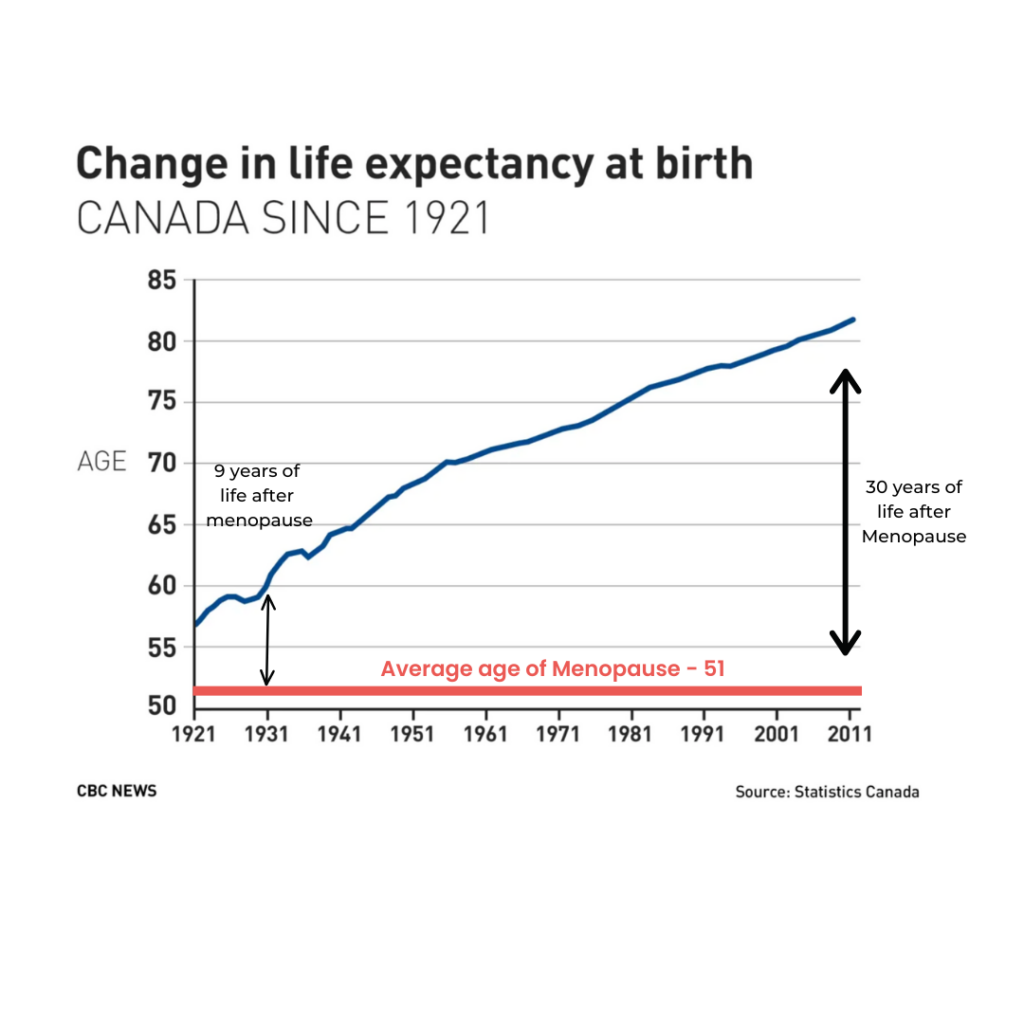Recently I’ve been pondering the question of why so many women suffer through the years leading up to menopause and in early menopause and why menopausal woman are at high risk for metabolic disorders (insulin resistance, weight gin, Type II Diabetes, fatty liver disease), heart disease and osteoporosis. Surely we weren’t designed to suffer?!
During menopause, due to estrogen loss, women experience a default state of mild inflammation and increased insulin resistance. This makes us more susceptible to aches, pains, arthritis, and chronic diseases. Our decreased ability to process carbs effectively puts us at risk of metabolic dysfunction, including Type II Diabetes and weight gain.
It’s clear that diet, lifestyle and modern day stressors have a lot to do with how well a woman feels during these transitional years but is there more to this picture – why is menopause so fraught with health issues?
Recently, while talking with a local Naturopath I have partnered with on occasion, she mentioned that in addition to diet/ lifestyle, women today are actually living much longer in Menopause (with sub-optimal hormones). I’ll explain why this is important below.
Lifespan Changes
Did you know that In 1901, the average lifespan of a woman was only 50 years old and the average age of menopause was about 45 years old. This means that most women died right around the time of menopause.
What this also means is women lived most of their life with optimal hormonal levels presumably. Which also probably meant that they did not suffer so much with the symptoms of hormone decline.
But times have changed. Today, women are living approximately 30 years longer than they did in the 1930s, and this means spending a significantly longer time in the menopausal state. See the diagram below for a clear visual.

Increased Lifespan Impacts Health Span
The implications for our health span, the period of our lives when we enjoy good health, are profound. These extra 30 years of life means 30 more years of living without the protection of hormones. In the absence of hormones, we need to take extra care of ourselves if we want to be healthy during this time, since many cards are stacked against us. After all, what good is a long life if it’s plagued by sickness in the later years?
So, what’s the solution? It’s time to take intentional steps towards our health and wellness. By optimizing our nutrition, becoming more active, and managing stress effectively, we can counteract the tendency towards inflammation and insulin resistance and greatly reduce the possibility of disease in that later stage of life.
Here are some simple ways to optimize your nutrition:
- Increase protein intake at every meal, by a lot (aim for 30g of protein at breakfast, lunch and dinner).
- Reduce starchy and processed carbohydrates such as potatoes, bread, pasta, crackers, muffins, and cookies.
- Include more vegetables and low-sugar fruits in your diet.
- Stay hydrated.
Balancing your blood sugar is key here! If you’re unsure where to start in optimizing your diet and lifestyle for this stage of your life, or even if you want to get prepared in your early 40s, I’m here to help. This is an area I specialize in.
I offer a Free Discovery Call where we can chat about your current situation and you can learn more about my programs for optimizing nutrition and lifestyle for mid-life women. Investing in your current and future well-being is a priceless gift to yourself. Don’t wait – take charge of your health and embrace this transformative stage with confidence and feeling good in your body.



